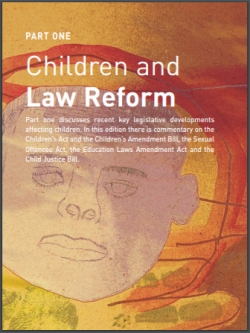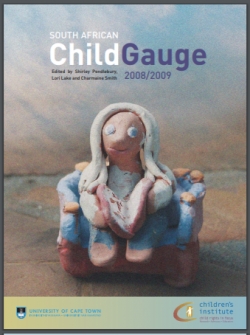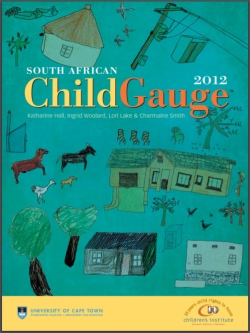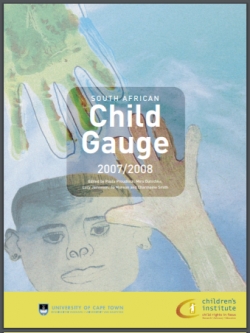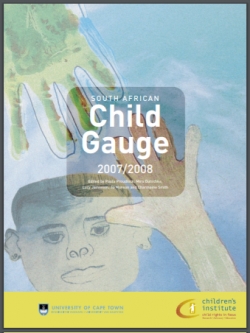In South African Child Gauge 2008/2009, pp. 10-15 Key legislative developments in 2008/2009

Book Stores
Type
E-Book
Category
ECCE
[ Browse Items ]
Publication Year
2009
Publisher
University of Cape Town, Children's Institute, Cape Town, South Africa
URL
[ private ]
Pages
6 p.
Subject
Early childhood care and education (ECCE), Legislation, Children's Act, Social Assistance Act, Social Service Professions and Occupations Bill, Education, South Africa
Tags
Abstract
‘Following the first democratic elections in 1994, South Africa ratified various international treaties, including the UN Convention on the Rights of the Child (UNCRC). Shortly after that South Africa adopted a new Constitution, which includes a dedicated children’s rights section that is based on the provisions of the UNCRC. The State is obliged to take legislative and other measures to make all of these rights a reality. This includes passing laws and regulations, developing policies and establishing programmes that “protect, respect, promote and fulfil” the rights of children. International law is constantly evolving as new treaties are written and states are obliged to bring domestic laws and policy in line with international law when they ratify new treaties. Expert panels established to monitor the implementation of various treaties also publish General Comments that explain how international treaties should be interpreted. Although General Comments are non-binding, they nevertheless set international standards of best practice which states are expected to adhere to. All laws must be consistent with the Constitution and international law, and laws that do not comply with the Constitution and international law can be challenged in court. Hence, the Constitution, international law and General Comments collectively assist in the drafting and development of new laws and policies for children.’ [p. 1.]
Description
Book chapter
Number of Copies
1
| Library | Accession No | Call No | Copy No | Edition | Location | Availability |
|---|---|---|---|---|---|---|
| Main | 854 | 1 | Yes |
